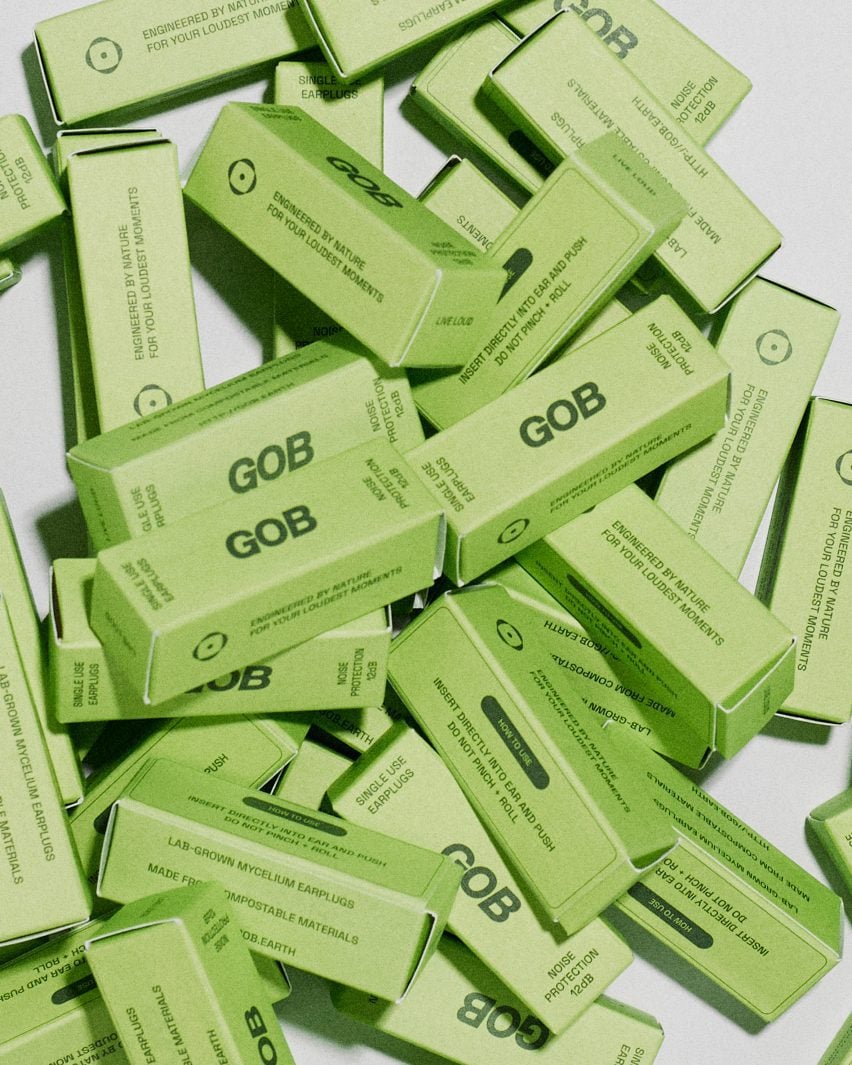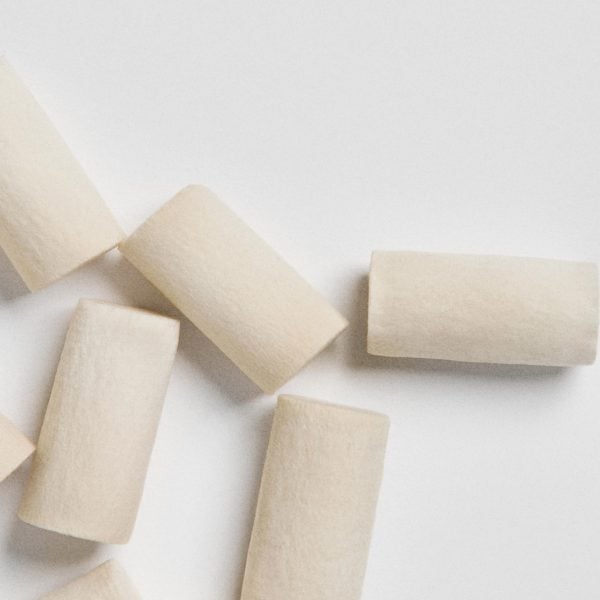Product company Gob has launched a pair of compostable, mycelium earplugs that were designed as an alternative to the 40 billion plastic earplugs produced each year.
Gob’s earplugs were made entirely from mycelium – the fibrous underground root network of mushrooms – and are expected to break down over an estimated 45 days once discarded to “feed the soil”.
“Our mycelium foam plugs go beyond just being compostable – once they’ve done their job, they return to nature by breaking down into nutrients that feed the soil,” said Gob.
“As a USDA certified, 100 per cent bio-based product, our earplugs contain no microplastics and no harmful residue – just pure mycelium doing what it does best: regenerating the earth, naturally and without compromise.”
The mycelium earplugs resemble the classic forms of bright yellow safety earplugs, although they are the light cream colour of their mushroom material.
They are made up of 100 per cent mycelium and are designed to be single-use to “ensure maximum hygiene and performance” according to the team.
Working with mycelium lab Ecovative, Gob produced the earplugs with mycelium made from agricultural byproducts, which is then shaped into small cylinders using a custom robotic system.
The result is a hypoallergenic earplug with a secure fit that moulds to the ear with a similar action as memory foam. According to the company, the mycelium structure also offers “exceptional” acoustics.

“Our aerial mycelium foam naturally dampens sound by evenly knocking down all frequencies, ensuring a balanced acoustic experience without distorting what you hear,” said the team.
“Unlike traditional foam earplugs, which can muffle certain frequencies, our mycelium-based earplugs provide superior sound absorption while maintaining clarity and comfort.”
This is the first object from start-up Gob, founded by Lauryn Menard, which is focused on creating sustainable wellness products.
Mycelium has seen a surge in popularity among designers for its structural and sustainable qualities. Recently, Fefostudio and Kamilla Csegzi created a mycelium-based table, while two British material companies experimented with dying the material.
The photography is by OOA Studio.
